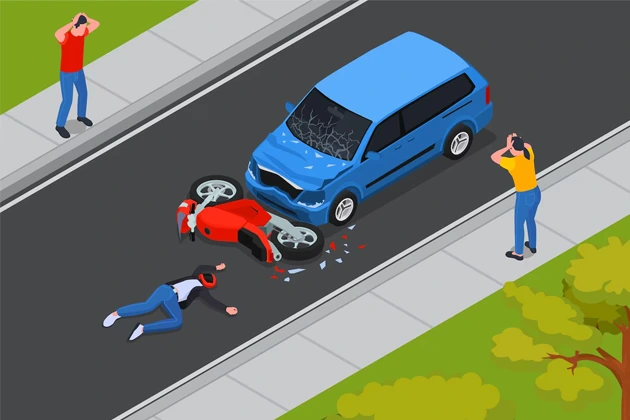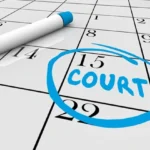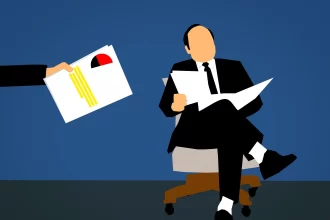California records thousands of motorcycle accidents where thousands are killed and thousands more are injured. Usually, when motorcycle accidents occur, lawsuits follow, with victims going to court to get full compensation for their losses. If you were involved in a motorcycle accident in California, it is important that you know who is at fault. Here are some frequently asked questions regarding motorcycle accident lawsuits in California, along with answers to them.
How Does the Law Determine Responsibility for a Motorcycle Accident?
Motorcycle accidents can have devastating consequences, leaving victims overwhelmed and uncertain. However, every driver owes a duty of care to other drivers, including motorcycle riders. If there is a collision, it means someone breached their duty of care; knowing who did it is extremely important. California is an at-fault state, which means the injured party can sue the negligent driver for economic and non-economic damages. The victim will receive compensation for property damage, injuries, medical costs, pain and suffering, lost wages, and emotional distress. Seeking the help of an experienced lawyer, such as personal injury attorney Walter Clark of Walter Clark Legal Group, is a good idea in such situations.
Who Can Be at Fault in a Motorcycle Accident in California?
When motorcycle crashes occur, the fault is usually with the drivers, but not all the time. Sometimes, no driver is at fault, but the manufacturer or parties responsible for designing and maintaining the road. For instance, the fault will be on the manufacturer if the accident happened because of a defect in the motorcycle. Otherwise, the parties who designed or maintained the roads are at fault if a defect in the roads caused the crash. Parties would typically agree on who is at fault in the accident; if that does not happen, a lawsuit will follow. In this case, a judge or jury will have to determine the at-fault party and the appropriate compensation.
On What Legal Grounds Can You File a Motorcycle Accident Lawsuit in California?
California law gives you legal grounds for filing a compensation claim if you can prove the at-fault party caused the accident. Your claim will only be successful if you can provide solid evidence that another motorist violated their duty of care, causing a crash. The legal grounds include:
- Speeding,
- Failure to yield to right-of-way,
- Reckless driving,
- Distracted driving, or lack of attention on the road while driving,
- Driving under the influence, and
- Failure to obey traffic rules.
What Factors Determine Settlement in Motorcycle Accident Lawsuits?
In California, many motorcycle accident cases are settled out of court, where the at-fault party makes an offer to the injured party. The amount of settlement you can get for a motorcycle accident depends on a variety of factors, such as:
- How serious the damage was,
- The severity of the injuries sustained,
- Whether or not the other driver was solely at fault or there is shared responsibility,
- The responsible driver’s insurance policy limit and
- How clear whose fault the crash was.
Defenses the At-Fault Party Can Raise to Avoid Accountability
As you try to provide evidence that the other driver caused the accident, the defendant is raising defenses to counter your claim. Below are defenses they can raise to avoid being held responsible for the accident and accountable for their losses:
- Arguing that the motorcycle crash was the motorcyclist’s fault,
- Arguing that the motorcycle rider’s actions worsened the crash and, therefore, they should share in the fault and
- Claiming the statute of limitations has passed.
Conclusion
The victim of a motorcycle accident in California is tasked with the responsibility of proving who is at fault, and this is done through a detailed presentation of evidence. Also, to receive full compensation for your losses, you must show the extent of the damage and losses you suffered. Navigating motorcycle accidents is challenging, but with legal guidance and proper evidence, you can secure compensation, hold negligent parties accountable, and rebuild your life.










